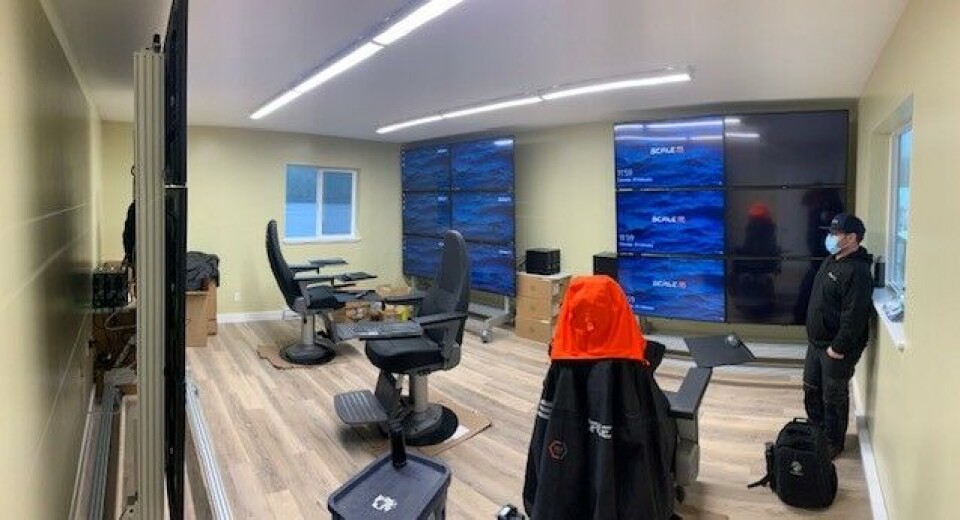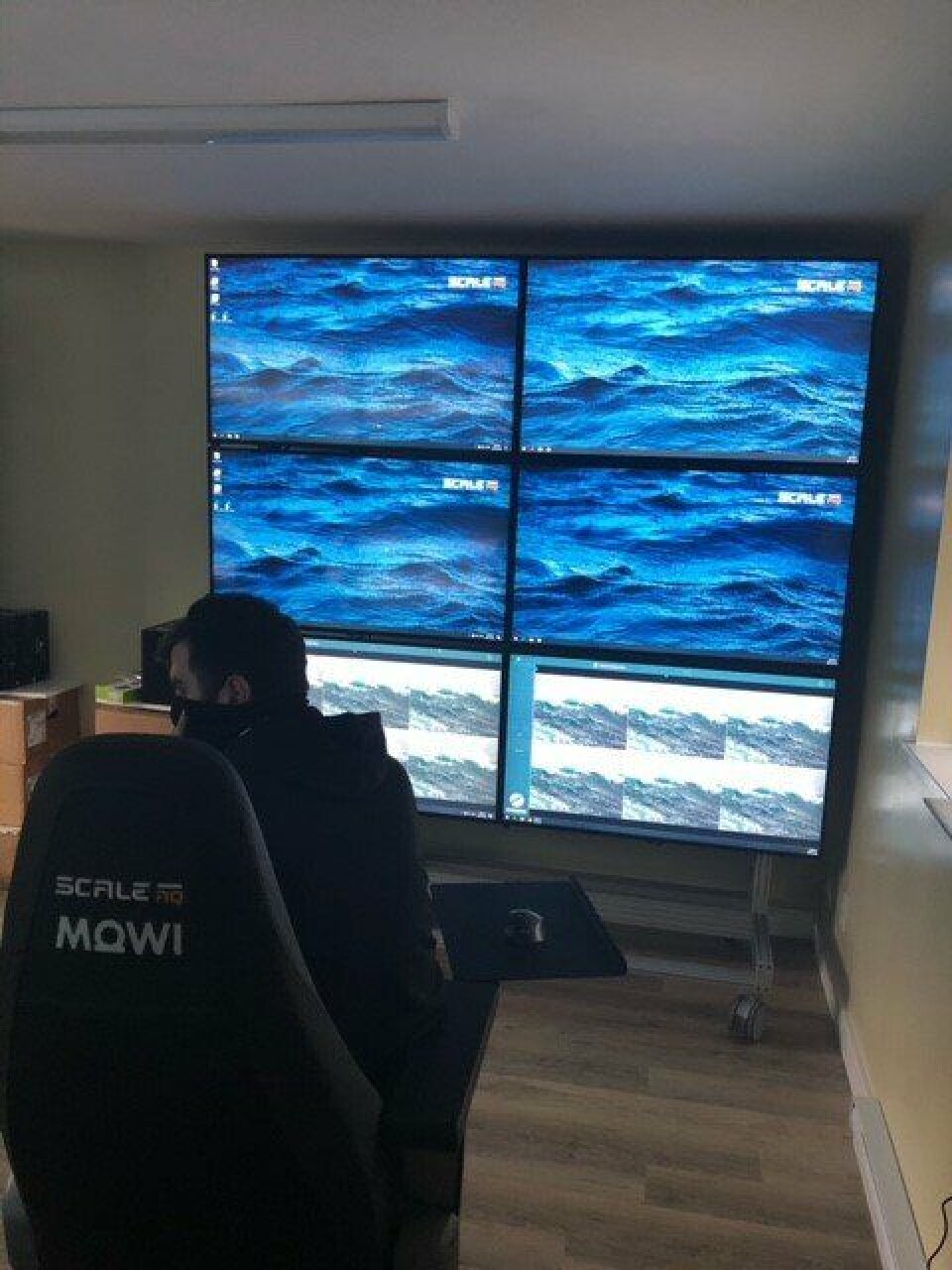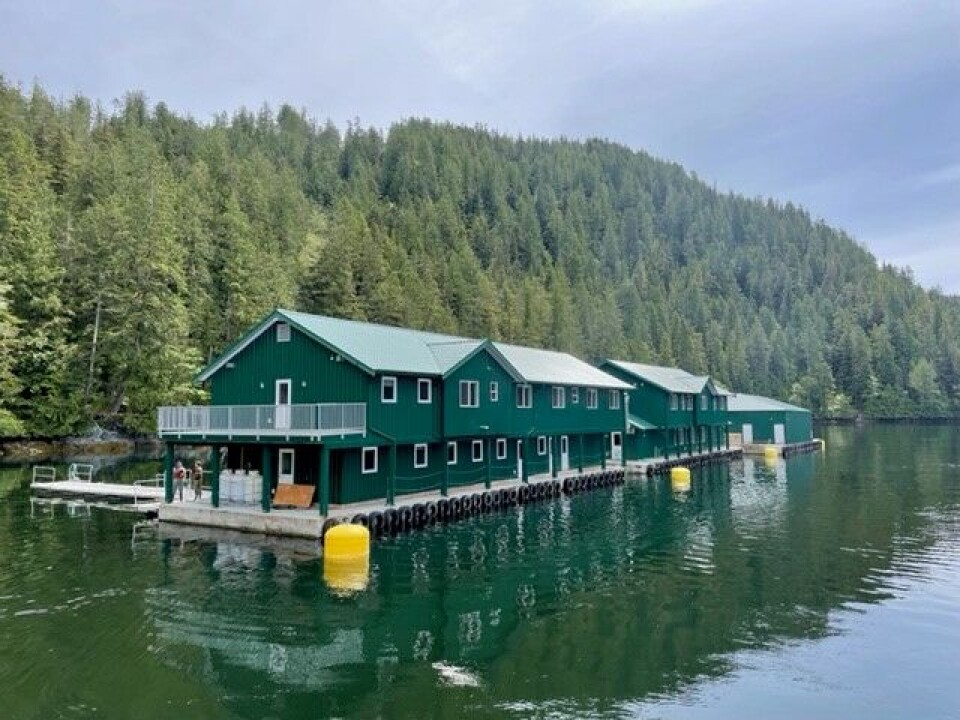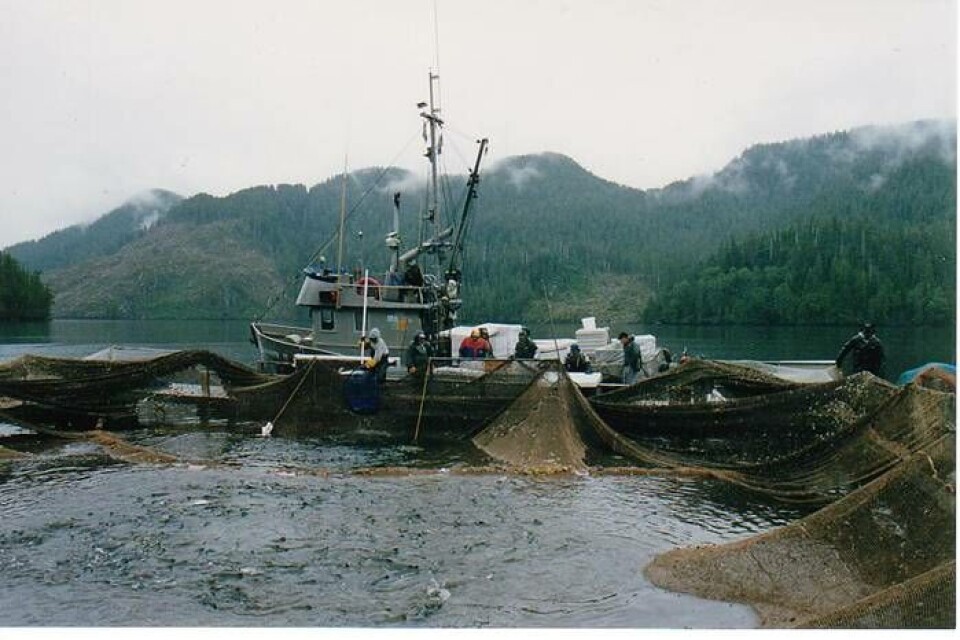
Mowi brings centralised feeding to Klemtu farms
Mowi has made what it says is a significant investment in a state-of-the-art centralised feed station at Klemtu, on Swindle Island on the northern coast of British Columbia in western Canada.
The feed station, which will remotely monitor feeding at four salmon farms, uses artificial intelligence (AI) as part of the monitoring process, which is a first for Mowi Canada West.
AI will be used to track individual feed pellets and fish activity levels. The software will monitor the images from the cage cameras, in effect acting as a second set of eyes for the feed technicians and will alert them if the number of pellets on the screen exceeds a set parameter or if the fish activity level drops below a set level.

Five staff
The feed station is in the same building as the recently opened smokehouse at Klemtu, a Kitasoo/Xai’xais First Nation community.
Andrew Richford, feed station manager at Klemtu, said the facility would enable Mowi’s teams at the marine sites to focus on solely on the salmon and their health and welfare.
“Five staff will work at the feed station, two per shift with me overseeing operations,” Richford told Mowi Canada West’s Wharfside newsletter.
“The feed station itself will also give us the ability to be very consistent. We will be able to analyse the data collected by the team, and the technology at the feed station and this will help us improve our feeding results going forward.”
Shift pattern
Another benefit is that the feed station’s location in Klemtu will enable Mowi to offer jobs to people from the Kitasoo/Xai’xais community who have previously been unable to take up roles with the company.
“We have a core of skilled workers from the Kitasoo/Xai’xais community but typically they are all male,” said area production manager Fabian McCarty. “This is because the shift pattern of eight days on and six days off doesn’t suit everybody. By putting the feed station on land at Klemtu, it means that other members of the community, especially females, could work here.”
McCarty said the centre would also enable Mowi to give more people a look at its growing salmon.
“Fish farming has been a big part of this community for 20 years but not everybody has had the opportunity to see the fish first-hand in their marine environment. Thanks to our large screens in the feed station, we have a lot of interest to see the salmon on the big screen. We hope to have an open day and host school visits as well.”

Accommodation upgrade
Mowi has also brought a new, 28-bedroom centralised accommodation barge to the area to replace The Camp House, a structure which the company said no longer met its requirements.
The new barge has bedrooms with TVs, a staff restaurant, a gym and office space for paperwork, and is a significant improvement for staff, said McCarty.
“After a long hard day at sea, coming back to a meal cooked for you and a well-equipped accommodation means that you can just relax and wake up refreshed for work the next day. With the accommodation barge and the centralised feed station, Mowi is investing significantly in Klemtu and the Kitasoo/Xai’xais community and I am very proud to be part of that.”

20-year partnership
Isaiah Robinson, general manager of Kitasoo Development Corporation, said: “Over our 20-year partnership, Mowi Canada West has strived to invest in our people's future, the centralised feed station and new living quarters are great examples.”
He added: “By Mowi Canada West investing in our future, they bring hope and prosperity to our people and economy.”
Licence renewals
The new feed station and accommodation barge come during an uncertain time for salmon farming in BC, with farmers unsure if licences will be renewed by fisheries and oceans minister Joyce Murray, who opposes net-pen farming.
In December 2020, Canada’s former fisheries and oceans minister, Bernadette Jordan, refused to renew licences for 19 farms in the Discovery Islands, leading to job losses at farms, a hatchery and a processing plant in Surrey, Greater Vancouver. Jordan said her decision was heavily informed by talks with First Nations opposed to the farms in their territories, despite studies by government scientists that the farms posed no more than minimal risk to wild Pacific salmon.
A further 79 licences are due for renewal this June and the fear among fish farmers is that Murray will follow Jordan’s lead, even though other Nations such as the Kitasoo/Xai’xais support and rely on salmon farming.

Broader audience
Ruth Salmon, interim executive director of the BC Salmon Farmers’ Association (BCSFA), told Fish Farming Expert that salmon farming companies had so far been unable to secure a meeting with Murray. The BCSFA was therefore widening its efforts to stress the importance of licence renewals to coastal communities.
“The most important thing is to try and get our message out to a broader audience, so that those around the Cabinet table and those in the federal government in other areas understand the full nature of our sector and what it’s achieving and what it’s trying to do for Indigenous reconciliation and environmental sustainability and economic activity,” said Salmon.
‘4,700 jobs at risk’
An economic analysis commissioned by the BC Salmon Farmers’ Association (BCSFA) has calculated that more than 4,700 jobs in BC will disappear if the licences are not renewed.
It also warns that failure to reissue the licences would cost BC $1.2 billion a year in lost economic activity and $427 million in lost gross domestic product (GDP).
An additional $200 million in economic activity and 900 jobs would be lost outside BC.























































